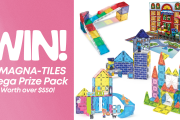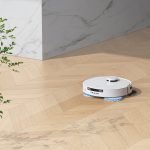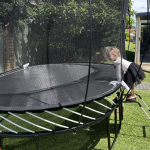Aussie Mum Anne Unwin Unpacks Parenting in Groundbreaking New Documentary, Seen
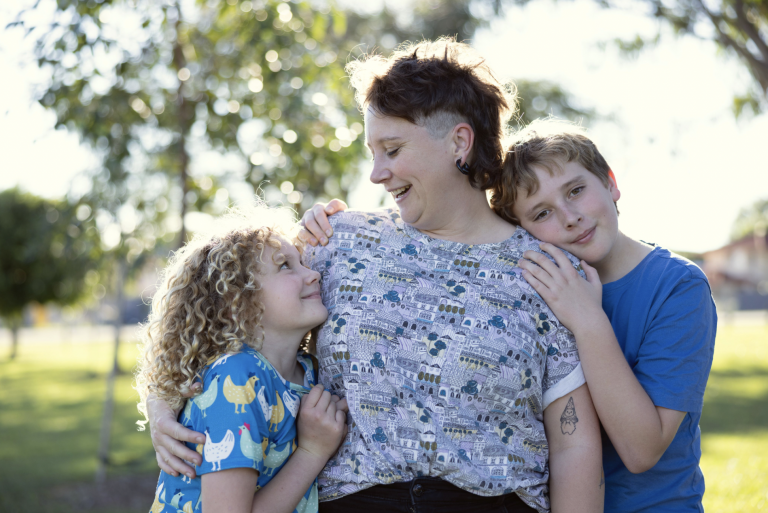
Anne Unwin, Queensland mum of two (7 and 10) – details her parenting journey in groundbreaking new parenting documentary Seen, premiering March 2 at Sydney’s Randwick Ritz. and being toured nationwide.
My nickname in high school was ‘the rock’, because that’s how tough I was, and that’s how little emotion I would show. I was known for always having a wall up, or people would say, “Let me in,” or, “Put your wall down.”
My idea was to change that for my children; I didn’t want them to be out of touch with themselves, and I didn’t want them to not know how they feel.
Growing up in Germany, I think culture influences how you deal with emotions. At least, I feel that many Germans now are rather strict, and there’s not much fluff and not much warmth.
My grandpa had lost half an arm because as a child he touched a bomb. I think a lot of PTSD went untreated and therefore kept on giving through the generations, which also affected my mother.
She obviously grew up with her parents having gone through what they went through… there was no space for her to be “upset about little things, because we went through war. You are not allowed to be upset about these tiny things, you don’t know how good you’ve got it.”
As a result, she didn’t have the tools to then deal with what I would have potentially, most likely displayed as a child.
I started reading books that would teach you or tell you a different way. The problem was that wasn’t working. I was on my knees, I was listening. I was trying to give empathy, but my son wouldn’t show the reaction that was described in the book, like he wouldn’t do his part, and I’d be like, “I’m doing what the book says to do, why is it still not working?”
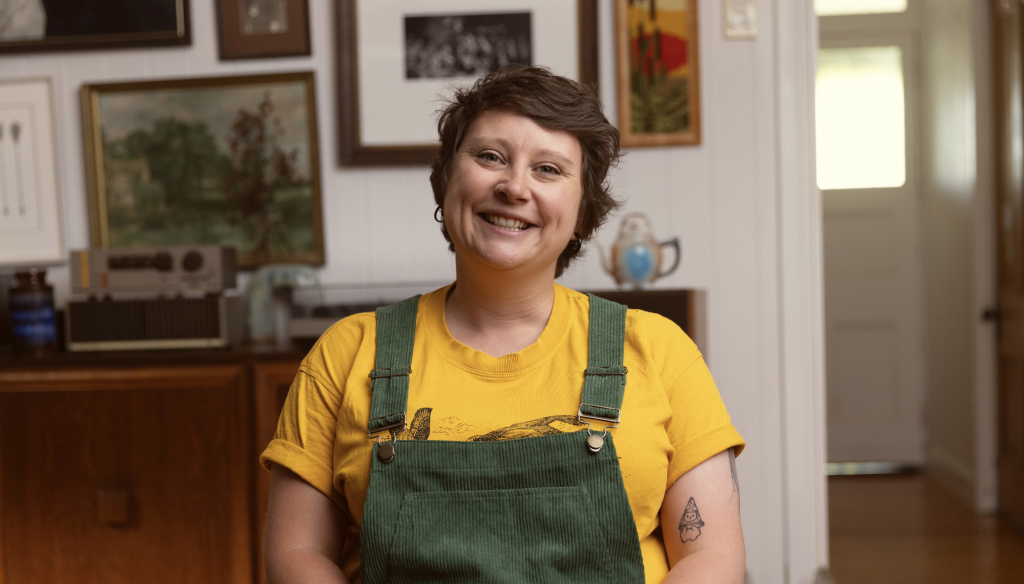
A friend I met through daycare told me about this program called Circle of Security. Every week you have an appointment with the psychologist, and beforehand you do a little session.
When you’re sitting behind the glass, they film you in your reactions with your child. When I started that, I believed ‘I’m doing this so I can then help my child with his behaviour.’
That’s how it started, but that’s not how it ended… the first six, seven weeks, I went every week, and I was almost a bit like, ‘I know these things. I don’t even know why I started doing this,’ until we got about halfway, maybe, and we were also going through some of the segments of my son and I being in the room together.
The counsellor would be like, “What do you see?” And I was just saying, “Yeah, well, I’m trying to help my son make a decision, he struggles with decisions.”
She was like, ‘We might look at that again next week.” I was like, “Okay!” Obviously I didn’t get it, and the next week came, and we watched the same segment, and I saw a completely different person and a completely different scenario.
I’ve tried to do the right things, but to then witness how cold I was, and how bad it actually was…It just floored me. I actually saw how it felt for me, and how uncomfortable I was and therefore, how disconnected I was from him, and how I did not have his best interest in mind; I was not truly trying to help him. I was trying to make this stop for myself.

I just saw myself as cold and not connected. There was just nothing there from me towards him, and he was with his mum, but he was left alone in the situation.
That was like the waking up moment, it just floored me. But it needed to floor me. The psychologist just sat there, and she said, “I can see this is really hard for you.”
And I was just sitting there bawling my eyes out. In my head, I’m screaming, “yeah, that’s good for you. Do something, say something, make this stop,” because that’s what I was used to.
Like, ‘these emotions are not safe. We don’t have them. We don’t do this. We don’t just cry in front of people.’ And she just sat there. But that was the aim, for me to just sit with it.
It was so painful, so awful and so uncomfortable and just so bad, but at the same time, it was what I needed and what I had to do to understand that you can just be with an emotion. You can just sit with it. You can actually just let it happen, for yourself and then for other people and your children.
Once we opened the Pandora box, there was no going back. It was hard and unravelled a whole lot of things. Everything. My life has changed completely since I’ve done the circle of security.

I have since divorced my husband; I have figured out that I like to be with women; I’ve moved into a house with my children’ I’ve dropped my fear of birds that I had forever; I now own birds and chickens and have a house full of animals.
I was able to, for the first time, look at what I want, who I am and who I want to be, and what are my true values, and what is truly important to me, whereas always, until then, I lived up to expectations.
Of course, I had to acknowledge the things that happened to me as a child, how my emotions were treated in a way that I now, as a parent, don’t agree with.
I did go through a stage where I was angry, but that passed fairly quickly as well, because it’s not about blame. It’s about empathy. And I have empathy for my children, and just as much for my mum. There’s no blame. It’s just about changing it and doing the best you can.

Now, I’m proud of having the relationship I have with my children. I’m proud of the choices I’ve made. I’m proud of having the time that I have with my children, of consciously choosing to work part time and to have the afternoons with them while they’re still in primary school, and while they still want to hang with me.
I’m proud of being able to listen to them and make them feel heard. I’m proud of giving them the tools to deal with difficult situations and difficult emotions. My job is not to give them a perfect childhood – my job is to be there with them and equip them for whatever challenges might come.
Groundbreaking new parenting documentary Seen, premiering March 2 at Sydney’s Randwick Ritz, and then is being toured nationwide. For details of Seen’s nationwide tour schedule, including ticket information, visit www.seenthefilm.com
To request a cinema screening for your local community visit https://au.demand.film/seen/
Individuals or organisations interested in staging their own public or private screening of Seen, can also access the film here


